- Home
- /
- Resources
- /
- Latest News
Construction File: What is Fair, Open and Transparent Bidding?
Ensuring that a bidding process is fair, open and transparent is perhaps the second most important element in the bidding process to contractors preceded only by whether they were the successful bidder on the project. Fair and open bidding is about promoting a transparent bidding process that eliminates favoritism or improper influence, while being diligent with the taxpayer’s money. Awarding contracts in a nontransparent manner, creates a cloud of uncertainty and suspicion that calls into question the propriety of contracts.
In response to what is clearly a new bidding environment in the current market place here are some elements that we believe are fundamental to fair, open and transparent bidding:
- Public Bidding – Ensure that projects are not single sourced, with the use of established thresholds for bidding that fall within some accepted industry standards. Refer to the BCCA Policy for Thresholds for some guidance (http://bccassn.xpr.cloud/policies/thresholds.html).
- Public Openings – Non public openings are the first step that trigger questions about the transparency of a bidding process. Contractors will question whether the bid recipient is allowing themselves the opportunity to award on some questionable conditions as a result of favoritism or improper influence.
- Bid Acceptance – Clauses in the Instructions to Bidders should treat all contractors fairly. Where a clause allows the bid recipient the option to accept non-compliant bids this can be perceived to show preference to one contractor over another. For one contractor the non-compliance is accepted, yet for another it may not be accepted; this is favoritism and is not transparent bidding.
- Subjective Bid Evaluation Criteria – When evaluating bidders on criteria other than price (e.g., expertise, management services or schedule) such criteria needs to be described and weighted adequately in advance in order to avoid post-award challenges: The extent to which the weighting criteria are disclosed in advance of the tender closing can affect the ability of the bidders to coordinate their bid. On Construction Management projects, where respondents are allowed to perform work on a cost plus basis, it must be clear if the accommodation is for temporary work only or if it is to also allow the CM to perform trade contractor work. Where CMs are performing trade contractor work on a cost plus basis the rates they charge for this work can affect what they will charge as a CM fee; costs for administering the construction can be included in the rates being charged for cost plus work. To ensure fairness in evaluation of the responses all respondents must have an equal opportunity to compete on cost plus work. Where subjective criteria are being used it would be recommended to employ the services of a knowledgeable third party fairness monitor.
- Trade contractor bidding – As trade contractor work on a project often constitutes 80 to 90% of the work, they as well deserve to be treated in a fair, open and transparent manner. Closing trade contractor bids through the BCCA Electronic Bidding System adds transparency to this process.
It may be a cliché but it is the reality; not only do public sector bidding authorities need to be fair, open and transparent but they must appear to be fair, open and transparent. The right thing to do is always the right thing and in this highly competitive environment everyone will be best served with clear principled processes.
.jpg)
BC Construction Association Contracts Fairley Strategies to Advise on Industry Advocacy Efforts Regarding Construction Procurement
.png)
BCCA Statement Regarding Compulsory Trades

Construction Workers Get Fast-Tracked for Covid Vaccine in Vancouver

BC Hydro and Site C Contractors Launch Canada's First Builders Code Work Site

Four British Columbians Recognized for Extraordinary Safety Leadership During Pandemic
.jpg)
Construction File - Building Back Smarter:
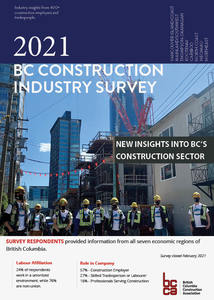
Latest Construction Industry Statistics Reveal Strength Despite Pandemic Challenges
.png)
BCCA Response to BC Budget 2021
.jpg)
BCCA Wins National Award for Second Consecutive Year

BC Restaurants to Benefit From Construction Month Celebrations This April
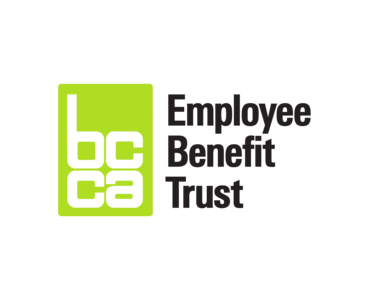
Christy Kerr of Kerr Controls Inc. To Chair BCCA Employee Benefit Trust Board of Trustees


Letters to the Vancouver Sun: Legislate Prompt Payments for the Construction Industry
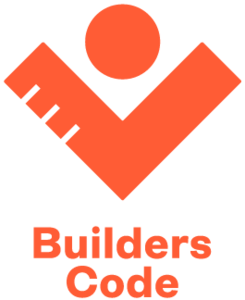
Builders Code Champion Awards Celebrate Culture Change In BC’s Construction Industry

BC Construction Association Announces New Board Chair
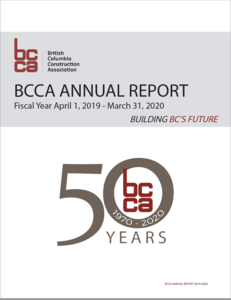
BCCA Releases it's 2020 Annual Report
BCCA to hold 2020 Annual General Meeting (AGM) Virtually
-01.png)
BC Construction Association Recognized for Achievements in Workforce Development with National Award

BC Construction Sector Awards to Recognize Workplace Diversity

Construction Sector United in Fight Against COVID-19
 (banner-large)-01.png)
Construction Culture Training Goes Virtual During Covid-19 Crisis
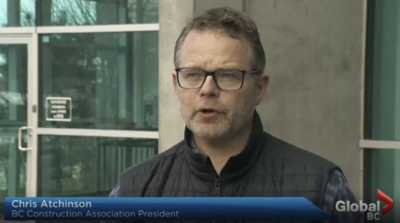
BCCA President, Chris Atchison Speaks to Global News About Safety Being the Most Urgent Priority on Construction Sites

BCCA Signs Agreement with eSolutionsGroup to Power BidCentral Platform
Business, Indigenous, and Community Leaders Call for a Return to Order
BCCA Responds to BC Government & Wet’suwet’en Leaders Agreement

BCCA Statement regarding COVID-19 coronavirus
BuildForce Canada 2020 Construction & Maintenance Looking Forward Report

Inaugural Builders Code Champion Awards Celebrate Construction Sector Leadership

BCCA Celebrates National Construction Day with New Worksite Behavior Training App
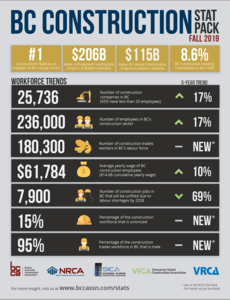
Fall 2019 Statistics Show Progress on Key Construction Sector Indicators
BCCA to hold 2019 Annual General Meeting in Prince George
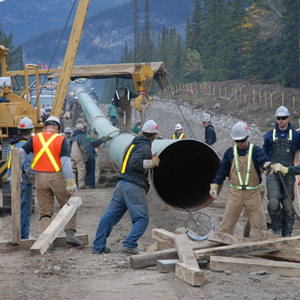
BCCA Welcomes Trans Mountain Announcement Resuming Work on Pipeline Expansion Project

Builders Code Ramps Up Services Across Northern Region
Court ruling allows construction industry stakeholder coalition to proceed through the B.C. Supreme Court with CBA challenge
Aligning the Construction and Technology Sectors
Multibillion Dollar BC Construction Sector Untapped by Tech
BCCA Commends Ruling in Favour of Trans Mountain Pipeline Project
BCCA Update on Private Members Bill for Prompt Payment
BCCA Response to Proposed Labour Code and Employment Standards Legislation

New Builders Code Training Program Gives Construction Leaders the Tools to Address Worksite Harassment, Hazing and Bullying

Six BC Employers Win Construction Leadership Awards
CBC Interview: Builders Code "Don' t Be A Tool" campaign
CHNL Interview: Construction Month 2019

BC Construction Month Launches with Latest Industry Statistics and Results of Province-Wide Industry Survey

Builders Code Expansion: First Advisor Now Available to Vancouver Island Construction Employers
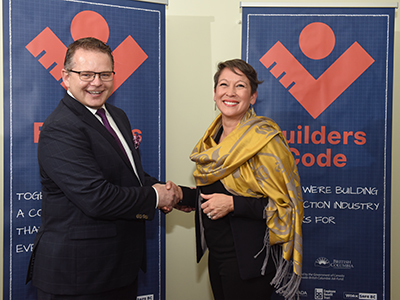
BC Construction Industry Introduces Worksite Conduct Standards to Improve Worker Retention
Risk Alerts Issued for Two Provincial Construction Projects
Contractor Alert - Westwood Court Prime Contractor Services
Contractor Alert - Hart Haven Group Home at Dagg Rd

Supporting BC's Skilled Workforce

British Columbia Construction Association Selected to Provide Pre-Arrival Services

A Dynamic Year In BC’s Construction Industry – Skilled Workforce Shortage Still The #1 Issue

Kinetic Construction Courts Young Hockey Players in Bid to Draw More Youth to Career Opportunities in the Trades

Angela McKerlich of CapriCMW Insurance Services Ltd. Elected BC Construction Association Board Chair

LNG CANADA Invests in BC and Canada: A Generational Milestone Achieved

BC 2018 Labour Market Outlook Released
.png)
BCCA Integrated Membership Update 2017
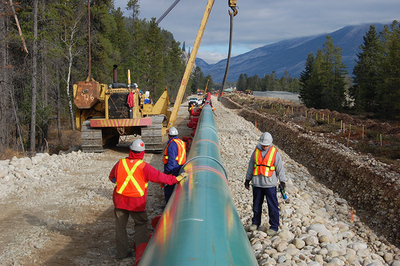
Response to Federal Court of Appeal's Trans Mountain Pipeline Decision
.jpg)
New BC Building and Plumbing Code 2018

Industry Policies that further validate BCCA’s challenge of the Community Benefits Agreement

Industry Voices - Industry Must Come Together
.png)
BCCA does not support Premier Horgan’s new Community Benefits Agreement
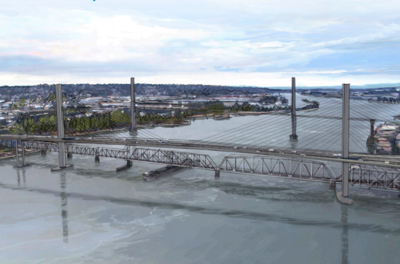
Pattullo Procurement Strategy Takes BC Construction a Bridge Too Far
.png)
B.C. needs Ministry of the Built Environment to manage construction issues

Response to the Province’s Community Benefits Agreement Announcement
.png)
Tackling the Late Payment Epidemic: What Will It Take?

Construction Month in BC 2018 Recap Video #BuiltRight

Understanding Risk British Columbia (UR+ BC) Video #URBC

BCCA Response to Federal Purchase of Trans Mountain pipeline for $4.5 Billion

Dodge Momentum Index Moves Higher in April

BC Lions Announce "Salute the Trades" Game Night September 7

LNG Canada and TransCanada's Coastal GasLink Project Announce Expansion of "Connect" Program
.jpg)
.PNG)